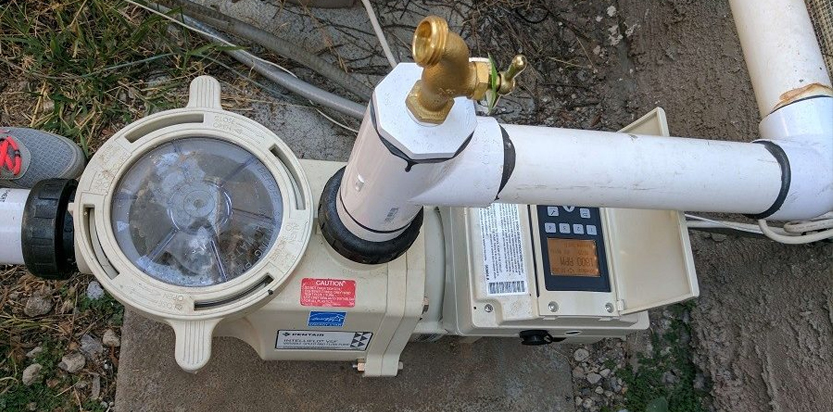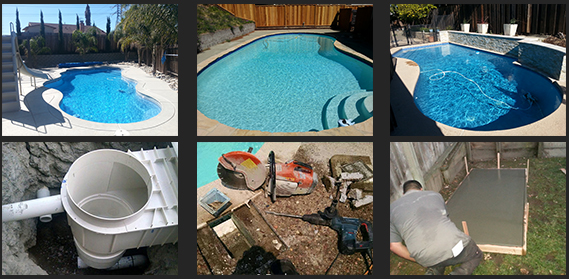Variable Speed Pumps
Are you in need of a new pump or considering changing out your existing pump?
Having trouble determining which pump fits your needs best? Well the good news is you came to the right place! After reading what we have to say about pumps in general should make your decision much easier. There are three general types of swimming pool pumps: a single speed pump, a dual/two speed pump, and a variable speed pump. While single speed pumps were your most common pumps out in the field, the dual speed pump and variable speed pump however are no-brainers, with the extensive savings do to their advantage in energy efficiency causing these pumps to grow their presence in the field day by day.

The Single Speed Pump
Single speed pumps were the norm for decades. Being the most traditional pump out there that most every pool owner is familiar with. Although the single speed pump has been around from day one these pumps are extremely noisy while operating and the most inefficient pump of the three. Once turned on the single speed pump runs full bore at a consistent speed, in most cases producing a lot more flow and energy than needed. After years of research and surveys, the single speed pump has been determined that it is the most expensive appliance to operate in today’s residential home, costing an average of $2000 per year to run. YIKES!
The Dual/Two Speed Pump
Dual speed pumps are the mid breed of the three. Sharing a little bit of the single speed pump and variable speed pump in one. Like a single speed pump the dual speed pump uses an induction style motor with the difference of allowing the operation of two unchangeable speeds, high and low. Operating the dual speed pump on low speed during normal filtration and utilizing high speed when running a pool cleaner, manual vacuum, heating, etc. A bit more costly than the single speed pump the dual speed pump is said to average a savings of 40-60% on energy costs to operate over the single speed pump. The sad truth is that some manufacturers are using misleading information to convince pool owners that the dual speed is capable of massive energy savings and is comparable to the variable speed pump, FALSE!
The Variable Speed Pump
Built with the newest technology today variable speed pumps come from an entirely different world! Instead of the induction style motor the variable speed pumps utilize permanent magnet motor. This advanced technology allows the variable speed pump to operate much quieter, run cooler, vibrate much less and last extremely longer than a single speed and dual speed pump. The motor within allows the user to dial in the exact flow rate or rpm needed to run the system and nothing more. Being allowed to adjust the rpms means no more wasted energy which will lower energy costs tremendously. Although the variable speed pump is the most costly of the three, there is no doubt that the variable speed pump will pay for itself. Average payback is within 1-2 years and savings of 80-90% energy costs depending on your current energy rate and how often you operate your pump. Not quite convinced on the variable speed pump? Take note that most utility companies offer a rebate on the installation of variable speed pumps to help offset the upfront cost to get one installed.
The Conclusion Is Variable Pumps are Preferred!
Once the functions of the variable speed pump is well understood its only common sense to favor this pump over all others. No other home appliance will compare to the savings this unit will save year after year. To sum it up for you there is no other pump that runs smarter.
California Filter Pump Regulations Title 20
In 2008, The California Energy Commission’s Title 20 Appliance Efficiency Regulations require new or replacement filtration pumps for residential pools to meet certain energy efficiency standards. Specifically, pump motors used to filter pool water that were made on or after Jan. 1, 2006. All filtration pumps 1HP or greater must operate at two or more speeds and such pumps may not be split-phase or capacitor start. The most common replacements are variable speed pumps due to their impressive energy savings.
